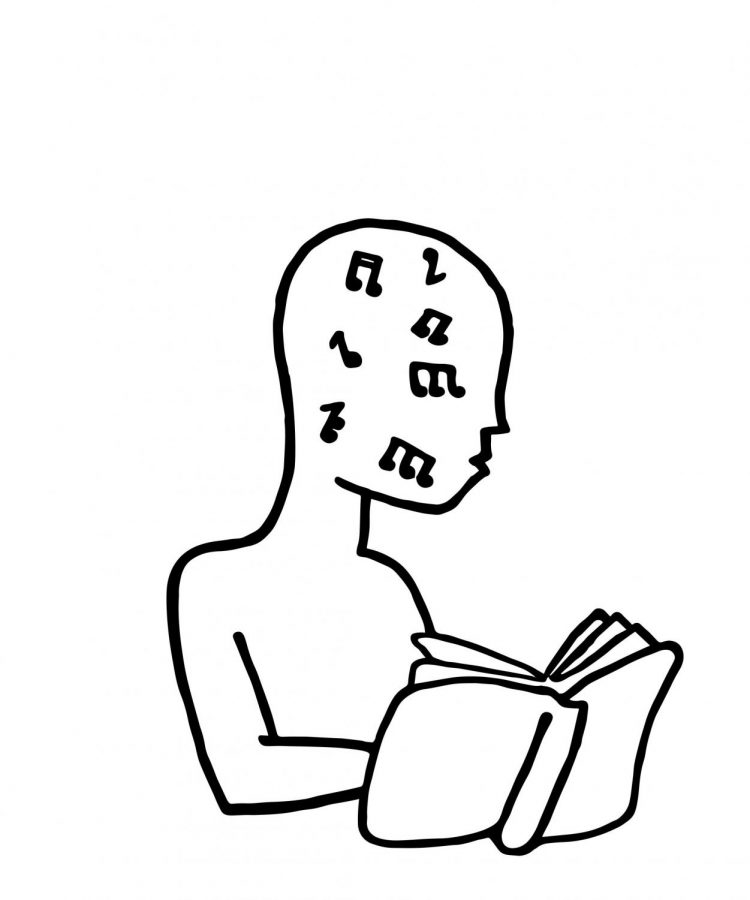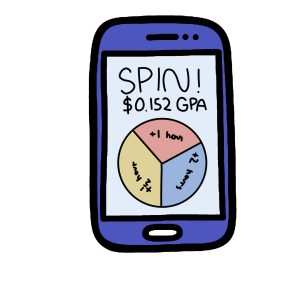Benefits of teachers having a classroom soundtrack
February 27, 2020
Stress – its overwhelming nature is an unforgettable facet of the high school experience. In fact, a Pew Research center poll reports that 61 percent of teens have a pressing expectation to receive good grades. With this pressure, there’s the inevitable task of tackling down workloads. And between deadlines, it is hard to find a way to manage it all.
The solution? Yes, planners and time management skills exist but they require discipline – adding another self-improvement task on the road to success. In fact, a quick, effective and overall effortless fix can be found in music.
The neurological and cognitive benefits of playing music in the classroom can significantly benefit students, so it’s critical that teachers consider making the classroom a more manageable environment.
First, it is important to distinguish what kinds of music should be played in the classroom. The likes of BROCKHAMPTON’s top-charting song, “SUGAR” or even the tracklist found on Frank Ocean’s Blond – although popular and more favorable artistry for students, can simply not be played in the classroom. Lyrical music – such as the tracks dominating the mainstream media – is distracting to the mind.
A study published by associates at the Center for Child and Media Studies analyzed the effect of music on the mind. They compared the effect of native language soap operas and silence on student memory and comprehension. The soap operas were found to lower student performance. Another insight by Marven Kenol from The Neighborhood Academy had the same results – this time students listening to English music performed worse on the reading section of the SAT listening to music.
In working, students will find themselves more focused on the lyrics than the actual work at hand, effectively eliminating lyrical music as a possibility of being played in the classroom. If anything, it would deepen the stress and mental health issues associated with academia as a whole.
That brings non-lyrical music into the conversation. In most cases, non lyrical music, specifically classical tunes, are found to be more rewarding towards the brain. According to Brooke Nelson and Dawn Yanek of the health and wellness publication, The Healthy, classical music is linked to cognition – or brain activity. Nelson and Yanek cite Catherine Jackson, a professional neurotherapist and licensed clinical psychologist in claiming that classical music promotes positivity from a mental standpoint. It was found that the rhythm of the orchestra taps into dopamine, a neurotransmitter that disseminates pleasure and incentivizes a stronger motivation to work harder.
Another publication by Florida National University looked into the effects of music, citing USA Today that reported “one study found that music’s effect on anxiety levels is similar to the effect of getting a massage.” It helps combat this mental issue among students. Especially in the face of Standardized Testing and finals periods, music can be the trump card to combat these mentally-defeating tasks.
The mind-engaging tempo of classical audio is a critical component for students who are overwhelmed and drowning in the likes of literary commentaries and group projects. Classical music, played during monotonous working periods helps guide students during these arduous times, serving as the near-mandatory minor release.
It’s clear. Teachers need to start employing non-lyrical music in the classroom – playing through loudspeakers and splashing a wave of musical content towards students. It can encourage them to play these tunes through their own audio players and devices – promoting a more healthy academic and cognitive life.








